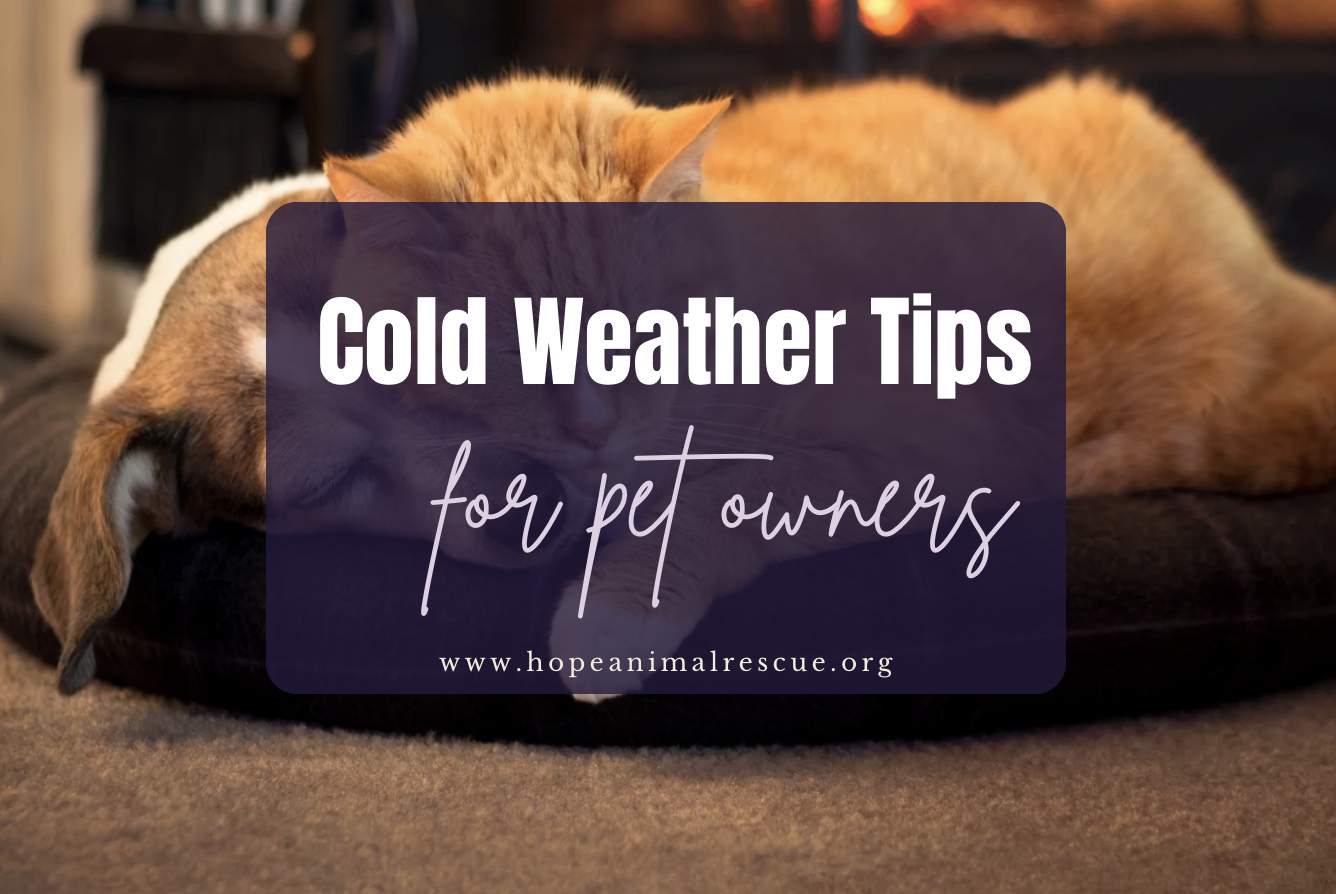We all know how dangerous hot weather (especially the heat) can be for our furry friends, but did you know that cold weather is just as dangerous? With the temperatures starting to drop, it is important to start taking extra precautions to protect your furry friend.
Be Prepared:
- If your dog has a short coat or is bothered by the cold weather, consider getting them a coat or sweater (ensuring that it fits properly).
- If you have an outdoor pet or there are animals within your neighborhood (such as a feral cat community), ensure they have a warm shelter available to them.
- You can never predict an emergency, but you can be prepared for one. Have an emergency kit that includes your pet’s needs (such as medications) in the event severe weather hits.
Know Their Limits:
Just like humans, pets have limits too, when it comes to how long they can tolerate cold, frigid weather. There are a variety of variables that contribute to your pet’s tolerance, such as
- Age of your pet.
- Length of their coat.
- General activity level.
- Their overall health.
Depending on your pet’s tolerance, it may be advisable to shorten walks in very cold weather. If you notice your pet to be lethargic or shivering afar coming indoors, contact your veterinarian immediately.
Avoid Injury/Illness:
- Check the Paws: check your dog’s paws frequently for cracked or bleeding paw pads. This could be a sign of a cold-weather injury or damage, and needs to be addressed promptly by a licensed veterinarian.
- Wipe Down: Upon coming back indoors, wipe down (or even wash, if your pet tolerates it) your pet’s feet, legs, and belly. During your Winter Walk, your pet may pick up chemicals (such as antifreeze) that may be toxic.
- ID your Pet: Snow and ice can hide recognizable scents that may normally lead your pet back home. Due to this, it is especially important to ensure that your pet has a well-fitting collar with an up-to-date identification tag.
- Check the Hood: A warm vehicle engine can be an appealing heat source for outdoor and feral cats, so before starting your engine, be sure to check underneath the car.
Overall Happiness:
- Warm, Cozy Sleeping Options: Just like humans, pets like to be warm and cozy when settling down. Depending on the length and thickness of your pet’s fur, they may need multiple options of places to settle down. Give them some safe options that allow them to vary their sleeping place.
- Keep your Pet’s Body Health: Some pet owners might feel that they need to feed a little extra during the Winter months, but this may not always be the case. We suggest talking to your veterinarian and coming up with a plan suited for your pet’s individual nutritional needs.
- Stay Home & Warm: Sometimes you just want to bring your furry friend along for a ride; but this can be dangerous. Cars can rapidly cool down in cold weather, making it like a refrigerator, which can be very dangerous to your pet.
All information from AVMA.
This blog post is not meant to replace or provide any medical advice. If you have any questions or concerns about your pet’s health and safety, please consult a licensed veterinary professional.

